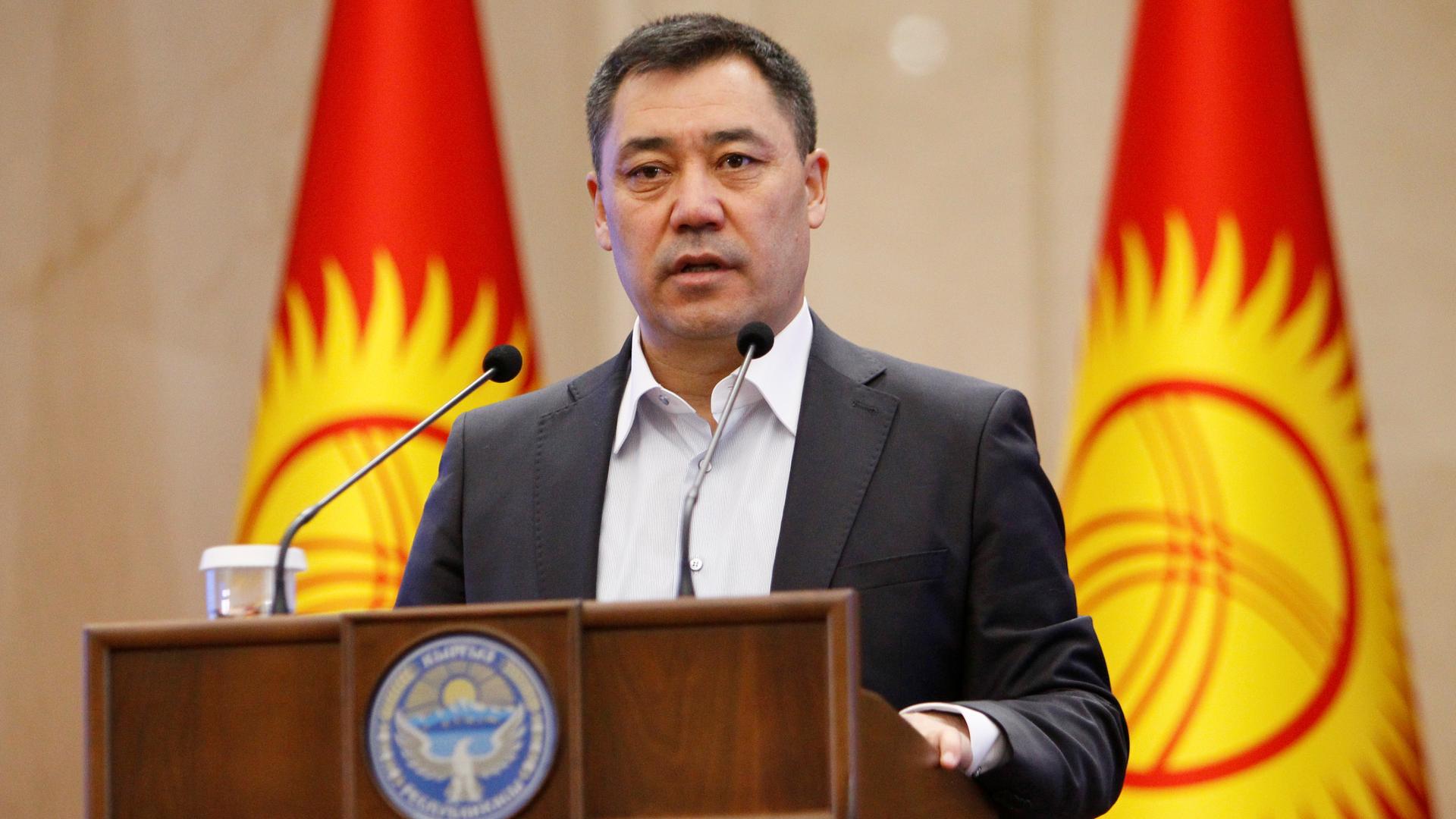Kyrgyzstan’s acting president Sadyr Japarov styled himself a reformist in his first major speech to the nation, as he pledged to tackle crime and corruption while cementing control over the troubled country.
Japarov, who is still prime minister, earlier appointed close ally Kamchibek Tashiyev as national security chief as he consolidated power in the Central Asian republic following unrest over a disputed parliamentary vote.
Japarov’s rise to the top has been controversial because of suspicions that criminal networks played a key role in the unrest and because Japarov was himself freed from jail by supporters on the night of October 5.
He appeared in parliament on Friday along with outgoing leader Sooronbay Jeenbekov, who resigned the day before.
READ MORE: Kyrgyzstan extends state of emergency amid violent protests
High-speed transfer of power
Stone-faced Jeenbekov said his decision was motivated by a desire to avoid bloodshed after Japarov’s supporters massed in the capital Bishkek and insisted he step down immediately.
Yet the high-speed transfer of powers to Japarov has raised European Union concerns over whether it was in line with the country’s constitution. Key partner Russia has also yet to publicly acknowledge him as acting head of state.
Japarov struck an upbeat tone in his address, promising opportunities for youth in government and “a real fight against corruption” that will “cease to be a tool for eliminating political opponents”.
Last week Japarov responded angrily to reports questioning his potential links to organised crime as part of a media campaign to “blacken my name”.
On Friday he said organised crime “will stop dictating its terms”.
READ MORE: Kyrgyz PM claims presidential powers as Jeenbekov quits
Youth to ‘shape’ future
“I guarantee it. The times when it was necessary to obtain permission from a criminal to operate a business in certain regions will become the past.”
One person died and more than 1,200 people were injured during clashes between protesters and police after parliamentary elections on October 4, which opponents say were rigged by vote-buying schemes.
Japarov hailed the dead protester – a 19-year-old from the south of the country – for his bravery fighting the “lawlessness” of the Jeenbekov administration and promised young people “will shape the policy of our country in the coming years.”
Jeenbekov became the third president of the volatile ex-Soviet state to resign since Kyrgyzstan became independent of the Soviet Union in 1991.
Japarov’s naming Tashiyev as security chief is key because the national security committee is an important lever of influence for Russia, as some GKNB officers train with Russia’s Federal Security Service (FSB).
Russia said earlier this week that Foreign Minister Sergei Lavrov had spoken by phone to counterpart Ruslan Kazakbayev, a member of Japarov’s new-look cabinet confirmed on Wednesday.
Recent unrest in Kyrgyzstan has worried Moscow, coming as post-election protests rock ex-Soviet Belarus and clashes persist over the breakaway Nagorno-Karabakh region of Azerbaijan.
But there was no indication of direct talks between Japarov and Russian leader Vladimir Putin.
Japarov was spending a second stint behind bars on a hostage-taking conviction at the time he was sprung from jail.
He has called the conviction, which has since been reversed by a judge, a “political order”.
READ MORE: Kyrgyzstan’s Japarov nominated again as premier in repeat parliament vote
‘Serious questions’
Japarov claimed presidential powers on Thursday after the country’s speaker refused to inherit them from Jeenbekov.
According to the constitution he will not be able to run for presidential elections that electoral authorities have said may take place on January 17.
Lawmaker Omurbek Tekebayev meanwhile warned him in parliament that backing Tashiyev or another ally at the elections could diminish public trust in the vote.
Central Election Commission head Nurzhan Shaildabekova said Friday that fresh parliament elections could be held on December 20.
Neither date has been confirmed.
The EU’s foreign policy chief Josep Borrell said there were “serious questions” over whether the transfer of powers had taken place within a legal framework, citing concerns over the division of powers in the executive.
In apparent reply, Kyrgyzstan’s foreign ministry said late on Friday that power had been transferred “peacefully and in strict accordance with the current legislation of the country”.










Discussion about this post